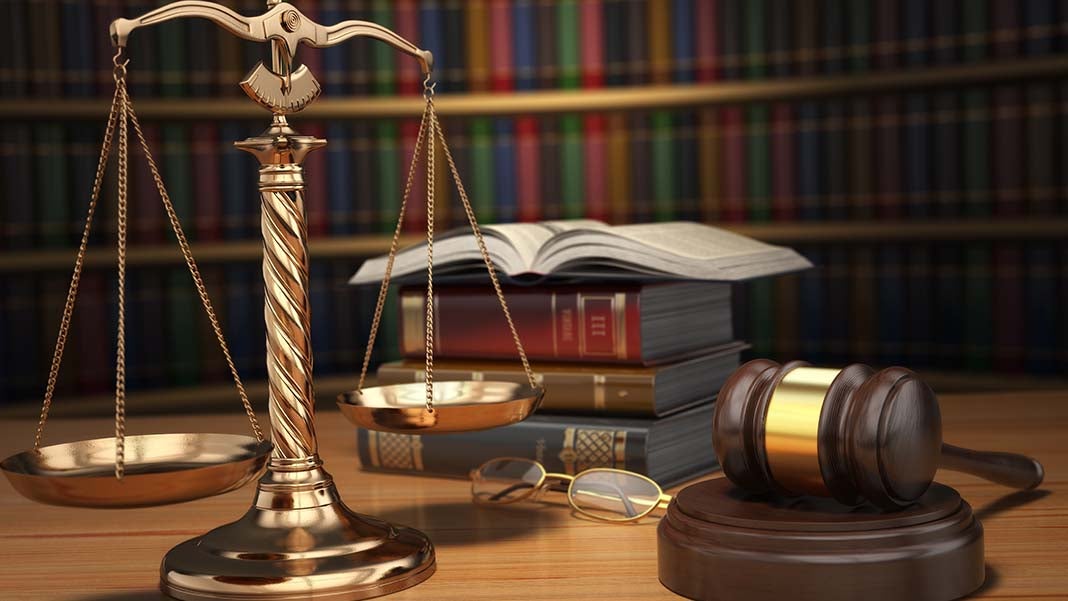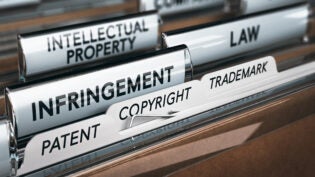
 Recapping major developments from this past year in IP, branding law, trade regulation, and entertainment law, COVID-19 once again dominated our lives some two years later, casting its long shadow over the legal landscape. And branding law was no exception as outlined in our piece, COVID ®: Global Pandemic or U.S. Brandemic.
Recapping major developments from this past year in IP, branding law, trade regulation, and entertainment law, COVID-19 once again dominated our lives some two years later, casting its long shadow over the legal landscape. And branding law was no exception as outlined in our piece, COVID ®: Global Pandemic or U.S. Brandemic.
Aside from the long-awaited U.S. Supreme Court decision in Google v. Oracle, finding in favor of copyright fair use and interoperability/open source programming, there wasn’t much governmental action on the antitrust and trade regulation front relative to Big Tech, contrary to our predictions in 2021 In the Law; or, It Only Gets Better from Here – A Brief Look Ahead.
Facebook and Classic Re-Brands
Perhaps we’ll see more movement in 2022 though. Meanwhile, in what seems like a bit of a pre-emptive maneuver, Facebook did begin its ambitious rebranding effort to position itself in the forefront of web 3.0 after dominating web 2.0 over the past couple decades. With intellectual property law leading the way whenever new technology is introduced, we can expect to see an increasing number of lawsuits filed in the areas of patents, trademarks, and copyrights, effectively blurring the once-clear delineation between real property and intellectual property as both cryptocurrency and fiat money increasingly change hands through virtual land purchases, NFTs, and such.
Essentially, these transfers are minimally-tangible and will instead, progressively take the form of a mental construct inside a world that exists almost entirely within the mind as facilitated through various digital platforms, raising a host of new legal issues going forward. How ‘Meta’, indeed!
Also relevant to rebranding, some venerable trademarks, including Aunt Jemima, Uncle Ben’s, Eskimo Pie, Cleveland Indians, Washington Redskins and others were finally changed this past year or transitioned as such in a nod to greater cultural awareness and corporate responsibility. And despite plenty of initial handwringing among the culture warrior crowd, these changes have all been occurring without much push back or popular attention.
Just like death and taxes, USPTO fee increases are always inevitable and unavoidable. So of course, we encountered more of the same in 2021. And as further noted in our prior preview, the Trademark Modernization Act has just recently taken effect. So, we should begin seeing early examples of implementation shortly. Likewise for some initial Copyright Claims Board cases. Also, it’s soon expected that the Trademark Office will no longer be issuing paper certificates of registration, unless an additional $25 fee is submitted. Finally, all domestic trademark owners and attorneys licensed in the U.S. or Canada will be required to register for identify verification with the USPTO prior to any future filings.
Copyright Infringement
Speaking of inter partes actions, some notable instances included a failed attempt to fend off an expected jury trial in 2022 over alleged copyright infringement by defendant Taylor Swift for song lyrics contained in “Shake it Off”. Counsel has since requested reconsideration, misapplying the recent “Stairway to Heaven” copyright decision, which instead turned on the Copyright Act of 1909, irrelevant to the Swift fact pattern and detailed in our previous retrospective, 2020 Vision: Counting Down the Top Intellectual Property, Entertainment And Branding Law Decisions From This Past Year.
Other high-profile copyright cases from 2021 included the now-pending Pearson v. Chegg dispute as recently outlined in the Forbes.com piece, Legal Experts On Pearson V. Chegg And Why It Could Be A Huge Deal, in which we opined: “While Chegg’s copying of Pearson’s textbook study questions could be deemed infringement, Pearson may be overreaching in claiming that Chegg’s answers, based on those questions, also violate the Pearson copyrights. Chegg may be able to successfully argue that said answers are simply derivative works.”
Meanwhile, the App Store injunction set forth in Epic Games, Inc. v. Apple Inc., 4:20-cv-05640-YGR (N.D. Cal. Sep. 10, 2021), to allow for direct payments to mobile software app developers operating within the Apple ecosystem has just been put on hold pending appeal. As we’ve noted in the recent Yahoo Finance article, Apple’s ‘incipient antitrust conduct’ cited as judge refuses to delay App Store changes, “Apple’s request could be viewed as overreaching. Apple’s anti-steering provisions are essentially restricting consumer choice.” Whether the previous decision is upheld should be an interesting one to watch in 2022 and likely beyond, again having significant implications for trade regulation and antitrust relative to Big Tech.
Public Domain
Finally, we’ve been seeing increasing numbers of important copyrights passing into the public domain in recent years, which is not surprising given the ninety-five-year statutory duration for works published in the U.S. after 1923 but before 1978. Considering that “The Jazz Singer” was the first feature-length film with sound and released in 1927, the proverbial floodgates should be opening within the next few years.
Already starting in 2021, “The Great Gatsby”, another jazz-age classic, has become a public domain work. Hemingway’s “The Sun Also Rises” has now attained the same status. And of course, there are all the iconic sound recordings of that period. How apropos as well, occurring almost one hundred years after the Spanish Flu pandemic and subsequent “Roaring Twenties” from the prior century. Assuming the copyright laws aren’t extended once again, none other than the earliest Mickey Mouse examples will soon be freely available, while as of last week, Disney has already lost exclusive rights to both the original Bambi and Winnie-the-Pooh.
As Walt himself once prophetically stated, “In this volatile business of ours, we can ill afford to rest on our laurels, even to pause in retrospect. Times and conditions change so rapidly that we must keep our aim constantly focused on the future.” And with that in mind, here’s to a bright 2022 for us all!












